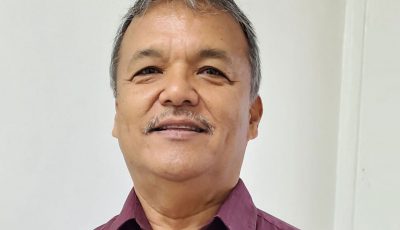Rolling chip program at 1.3 pct. rate authorized for BSI casino—regulator
The Commonwealth Casino Commission has authorized a rolling chip program at the Best Sunshine casino late last month.
The rolling chip program centers on non-negotiable chips, commission executive director Edward Deleon Guerrero explained in an interview. For play in VIP rooms, the volume of transactions is significantly larger than the mass gaming on the floor, and so the rolling chip program would come in when a transaction opens up between Best Sunshine and the player, with a junket operator—the gaming middleman who bring in these players—getting a percentage of that agreement.
For example, a player starts out with a credit of $500,000. On the first play, the player wins $100,000 in cash chips. That $100,000—if converted to non-negotiable chips—is subjected to whatever commission is in place.
Assuming a player has played the maximum $5 million set by the casino, 1.3 percent of $100,000 goes to the player, regardless if they win or lose.
If a gamer plays all of his $500,000 million and loses, Best Sunshine earns $500,000 but the gamer is eligible for 1.3 percent of the $500,000, because “every time a player rolls they are eligible for that commission.”
Referring to Best Sunshine’s filings that a total of $1.3 billion chips were rolled last November, Guerrero said that technically, for whomever combination of gamers that played that amount in total were, “there should be 1.3 percent of that total amount of chip rolled, for commission paid out.”
The rolling chip program also has what is called the “.1 percent for complimentary comms or credits,” Guerrero added. “These are your free rooms, free meals, whatever complimentary” benefits that the casino can offer that is built into the rolling chip program.
If a player’s expenses exceed the .1 percent set for free hotel and food, Guererro said, then this will be deducted from the 1.3 percent agreement between player and casino.
The 1.3 percent rate is also where a junket operator would earn his or her money as agreed to by the operator and the player.
“There is a settlement agreement that we monitor,” Guerrero added. “We receive copies of all settlement agreements” that basically “talks about what is agreed upon and what is paid out.”



























